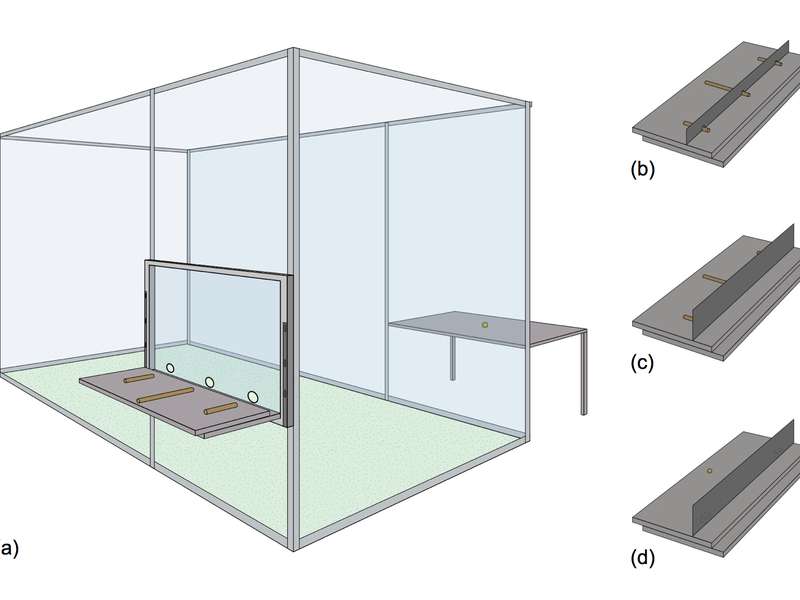Chimpanzees and orangutans look for information to fill gaps in their knowledge

It's a familiar problem: you leave the house and while closing the door, the question whether the stove was turned on or off pops up in your head. Although annoying, this problem could easily be solved by turning around and taking a second look. This simple example illustrates an important form of thinking: metacognition or the ability to monitor ones' own mental states. Before turning around, you assess whether you remember the state of the stove. Once you realize that you don't remember, you seek additional information. Importantly, in humans, this monitoring process is very flexible and can be applied to all sorts of thoughts, not just the ones about your stove. Researchers from the Max Planck Institute for Evolutionary Anthropology and the University of St. Andrews asked what great apes would do when they are confronted with such a situation.
In their study, chimpanzees and orangutans had to determine the precise location of a desired object that was hidden behind a little barrier on a table. In one condition, the location of the object was briefly revealed to the ape beforehand. In the other condition, it was not. At choice, the object was hidden in both cases. The main question was, whether apes would assess what they know about the object's location before making a choice and seek additional information in the condition in which they could not be sure where it was. The results showed that precisely this was the case: When no prior information was given, apes stretched or climbed up and peeked over the barrier before making a choice.
In the view of some researchers, information seeking of this kind suggests that apes form a metacognitive evaluation of the information at hand, similar to humans in the stove example. Others remain skeptical. In their view, the fact that apes behave similar to humans when they are in a similar situation does not mean that they monitor their own mental states. "Previous studies showed that apes seek information when they are unsure about the location of food. However, this behaviour could be part of a foraging strategy rather than a metacognitive process." first author Manuel Bohn says.
Tools instead of food
To address this possibility, the researchers also varied whether the object on the table was a piece of food or a tool. This manipulation investigated whether ape information seeking is limited to a specific domain. Critically, apes sought information in both cases, food and tools. This highlights the flexibility of their information seeking, lending further credence to the idea that their metacognitive abilities are more similar to humans than previously assumed. "Apes search for missing information much like humans do, but this could have a number of reasons. This study rules out at least one killjoy explanation. Ape information seeking is more than aimlessly searching around in hope of discovering food", adds co-author Matthias Allritz.
Study co-author Christoph Völter says: "Our study indicates that great apes seek information particularly when they miss a critical piece of information such as the location of a required tool. The results suggest that great apes monitor their own knowledge states and that they use this ability flexibly to fill gaps in their knowledge."
This study demonstrates that humans' closest living relatives possess cognitive abilities that allow them to assess different levels of available information. This is consistent with the idea that they have metacognitive abilities similarly flexible as those of humans. These abilities are used to optimize their decision making. "This study makes an important contribution towards elucidating the complexity and flexibility of memory monitoring systems in apes", says Josep Call.
More information: Manuel Bohn et al. Information seeking about tool properties in great apes, Scientific Reports (2017). DOI: 10.1038/s41598-017-11400-z
Journal information: Scientific Reports
Provided by Max Planck Society





















